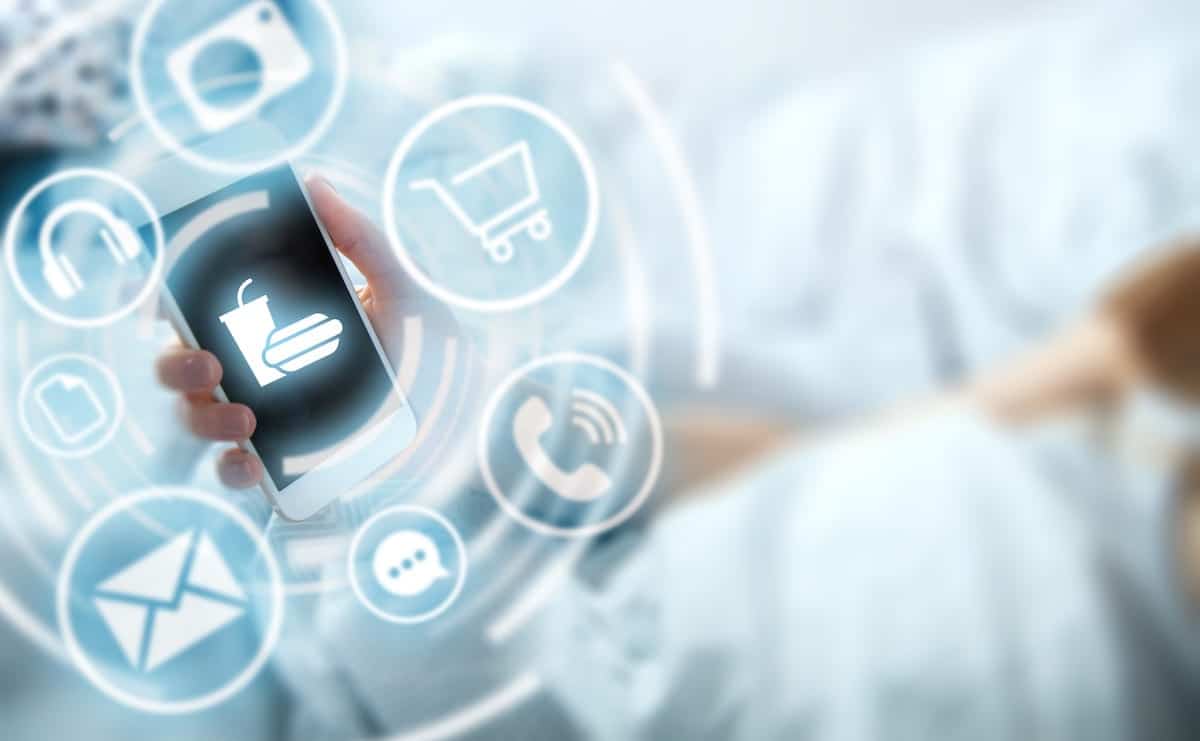By Hannah Hambleton
From UberEats to Deliveroo, food delivery apps have exploded in the last couple of years, perfectly combining making life easier for customers and reliance on smartphones. Delivery apps have transformed the restaurant industry, widening customer markets and accessing new demographics. Their success lies in the brilliantly effective marketing strategies behind each app, carefully developed to maximize customer engagement and increase ROI.
We’ll show you 7 lessons every small business can learn from food delivery apps, no matter what your industry, giving you that all important business edge.
1. Create Stand-Out, Engaging Content for Your Customers
For any small business, it’s important to stand out. This is especially important in crowded markets. Successful food apps have thrived because they’re constantly innovating, creating content and brand values that customers love to engage with.
Developing fresh, interesting content for your small business is essential to creating brand awareness as well as developing customer loyalty. Engaged customers will resonate much more with your brand and will eventually become more loyal and profitable for your business. Use tools such as Instagram Stories, Snapchat and video marketing to make sure your content is vibrant, relevant and attention grabbing.
2. Embrace and Use Data to Improve Your Business Strategies
Thanks to technology advances such as guest WiFi, beacon technology and geolocation tracking, there’s a whole lot of data available to improve your business performance. Using real time beacon technology can give you accurate information on the time customers spend in a specific location in your store, or WiFi logins can be used to encourage more lasting engagement at your business premises or restaurant.
Delivery app couriers are always connected to their mobile platform, providing constant analysis on the most effective delivery routes and the time taken to deliver each other. This data can then be used to improve services for customers, constantly streamlining the business.
3. Always Ask for a Customer Review to Boost Your Social Proof
Delivery app JustEat knows how important customer reviews are, putting them front and centre of their app and business. Reviews are important for a number of reasons. First, social proof through reviews is an essential concept to drive sales and awareness for any small business, capitalizing on the fact that customers always want what others are buying or ordering too.
Feedback is also essential for online businesses, giving customers a real sense of products and building up feelings of trust towards your business. Every small business needs to take asking for reviews seriously. Whether you’re a retailer or a restaurant, ask for customer reviews at every single stage of interaction. Ask at point of sale, or use marketing automation to email or send a push SMS to request a review. Your business results will thank you.
4. Send Targeted, Relevant Offers Based on Customer Data
One thing that’s guaranteed to create loyalty amongst small business customers is adding value to your customer by sending targeted, relevant offers and discounts. Delivery app Seamless regularly sends promotions and discounts to their customers; encouraging sales and helping to convince undecided customers.
For any small business, using customer behavioral data collected from various interactions will allow you to segment customers easily and effectively, giving you the tools to send targeted offers which are always relevant to each customer. Being able to individualize these offers will increase engagement and sales, for every single small business. Send these offers via email, SMS or even with direct marketing mail.
5. Use Location Tracking on Smartphones to Encourage Sales
Food delivery apps use geo-location marketing to target customers based on their location to certain restaurants. Small businesses can benefit from this too, utilizing beacon technology and WiFi data to use people’s locations to specifically target special offers or promotions.
For example, restaurants can send customers near the restaurant at that moment specific lunch special offers, or retailers can encourage sales or promote certain goods to customers near the store location. Online business can also use these techniques by defining their offers by visitor’s location. This adds real value to customers, helping them save time and treating them as individuals based on their locations.
6. Have a Consistent Marketing Strategy Across All Platforms
For any small business, a consistent marketing strategy, with constant and stand-out branding is essential. Take a look at delivery app Deliveroo. When they launched their delivery service in a new location, it was pretty much impossible not to notice. Their marketing message is consistent on social media ads, flyers and posters.
In terms of visual branding, their uniforms and delivery transport is consistent too, tying everything in with a clear visual message. Every single brand and small business can learn from this, ensuring that any visibility for your small business is always on-brand. This is important to build your brand awareness, as well as creating engaging storytelling and interactive content.
7. Make Things As Easy As Possible for Your Customers
The reason delivery apps have become so popular is that they make it easy for customers to buy the food they want with minimal effort, simply with a few taps on their phone. For any small business, this is an important lesson. Make it easy for customers to find you, to buy from you and to keep in touch. Removing barriers to purchase with a great retail set up, or creating an easy to navigate website are essential to encourage sales and positive brand associations.
All businesses can learn from delivery app marketing.
Delivery apps are huge marketing successes. Using key lessons such as encouraging reviews, having consistent brand awareness and creating engaging and stand-out marketing content will help boost your marketing strategies, whatever your small business is. You’ll increase your lead generation, help maximize customer retention, and ultimately, increase your bottom line.
Featured photo credit: Depositphotos
